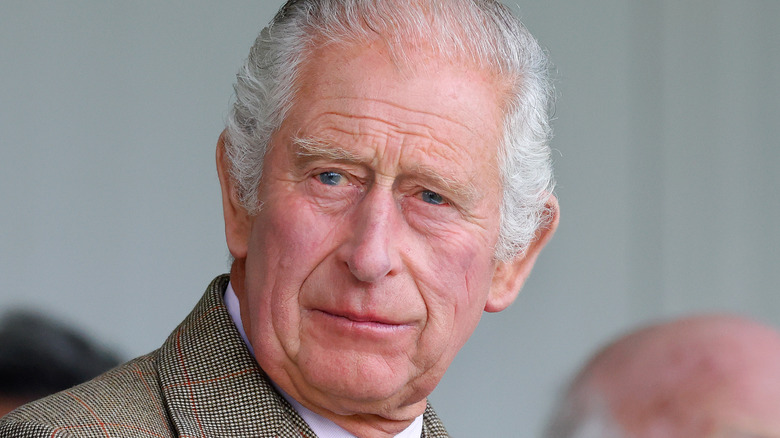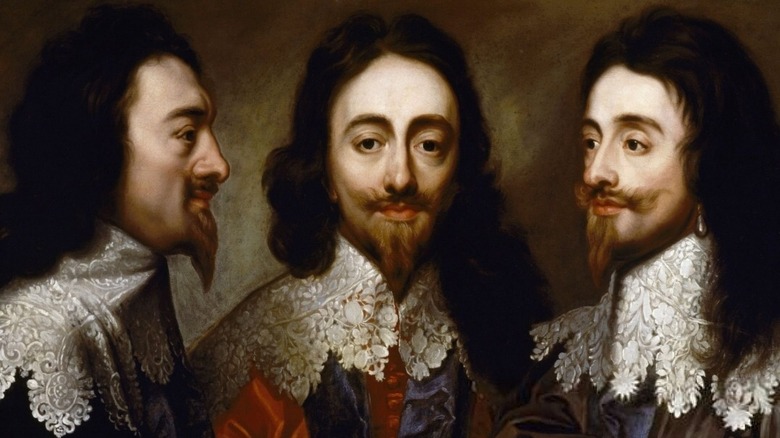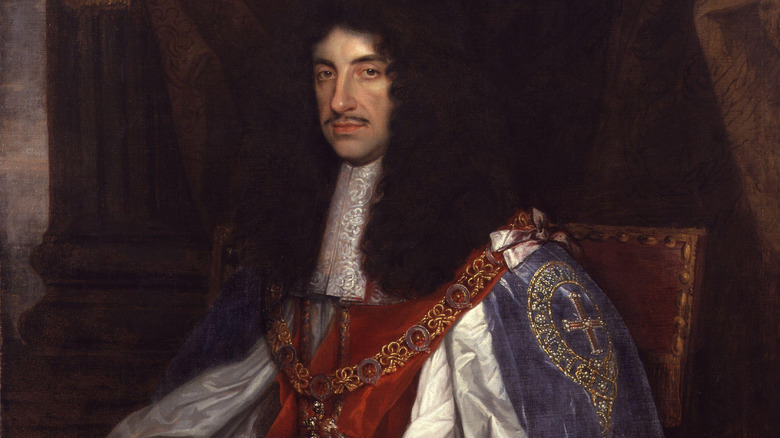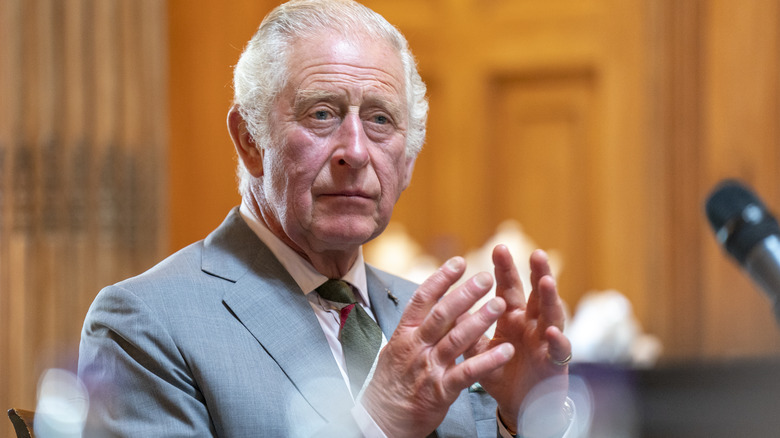Why King Charles III's Regnal Name Draws From A Dubious Past
Leading up to the tragic news that Queen Elizabeth II died on September 8, 2022, there was much speculation surrounding the potential regnal name of the United Kingdom's new monarch, King Charles III. Although it might seem straightforward what the name of the next monarch will be, the House of Windsor has a reputation for using a name other than their given one for their regnal name.
Princess Alexandrina was the first to abandon her given name to take another upon ascension to the throne, becoming Queen Victoria (via PBS). Her son continued the tradition by taking the name Edward VII, opting not to outshine the name of his much-beloved father, Prince Albert (via The Gazette). His grandson, also a Prince Albert, opted to take the name of his father to project the stability of the crown after the unprecedented abdication of his brother Edward VIII (via Biography).
In all three cases, extenuating circumstances drove the new monarchs to change the names history would remember them by. But unlike some of his forebears, King Charles III has never shied away from his name nor are there compelling reasons for him to do so. It had been speculated that the reputations of the previous kings named Charles would influence the king's decision, but given that it's been over 300 years since the passing of Charles II, their weight upon the modern world has been greatly diminished.
Charles I
King Charles I created conflict practically from the moment he became king in 1625. He quickly married Henrietta Maria, who was the daughter of the King of France. Her Catholic faith was instantly a problem because England was actively persecuting Catholics during this time and Charles I's parliament feared he would make concessions to them under the influence of his wife (via Historic UK).
The king was also not a man accustomed to compromise. He believed that he was divinely ordained to rule and thus felt no one had the right or authority to question his decisions. He clashed with his government on both matters of state and of faith. Charles I also had a habit of dissolving Parliament when he didn't get his way and reconvening it when he needed money (via Royal Museums Greenwich).
These conflicts only grew as Charles I's rule continued leading to a civil war. Charles was captured a few years into the war but refused to capitulate to any demands. The Parliamentarians put Charles I on trial — which he vainly refused to recognize — and found him guilty, sentencing him to death (via Britannica).
Charles II
The death of Charles I was followed by ten years without a monarch. King Charles II tried to retake England in the early years of the English Commonwealth but he was ultimately forced to flee to France, the home of his mother. The death of Lord Protector Oliver Cromwell in 1658 left England with many competing stakeholders but without a strong leader to tie them together. So in 1660, the House of Stuart was restored to the monarchy (via Britannica).
Whereas his father was known for his piety, Charles II was renowned for his vices. He was married to Portuguese Princess Catherine of Braganza, but they had no children. He did, however, have at least 14 illegitimate children (per Britannica). For this and his life-long pursuit of leisure, he was known as the "Merry Monarch" (via World History Encyclopedia).
His reign was also marked by innovation and tragedy. He founded the Royal Society — a group dedicated to advancing science and exploring the mysteries of the natural world — in 166. Yet, in the next three years, London would be wracked by an outbreak of the plague in 1665 and the city suffered the Great Fire of London in 1666 (via Royal Museums Greenwich).
The names not taken
Although we may have passed out of the Second Elizabethan Era into a new Carolingian Age, it's worth noting that we could have just as likely been on the precipice of a new Georgian, Philipian, or even Arthurian Age. Charles III's full name is Charles Philip Arthur George. Philip is the name of his late father, and George is the regnal name of his grandfather. While Arthur has no royal precedent outside of mythology, the moniker has been passed around the House of Windsor for a few generations.
Queen Elizabeth II will be remembered for ushering the United Kingdom into the modern era. While her family was the subject of tabloid gossip, she remained above it all. Queen Elizabeth II refused to put herself in political squabbles and so managed to be a queen for all (via NBC News).
It's impossible to know what the reign of Charles III will usher in. He's familiar with the heat of media scrutiny so it's likely he will follow in his mother's footsteps and continue to lead a quiet private life. Whereas Charles I and Charles II represent the extremes of piety and promiscuity, Charles III is a moderate that appears to have a much steadier hand on the tiller of the realm than his predecessors.



